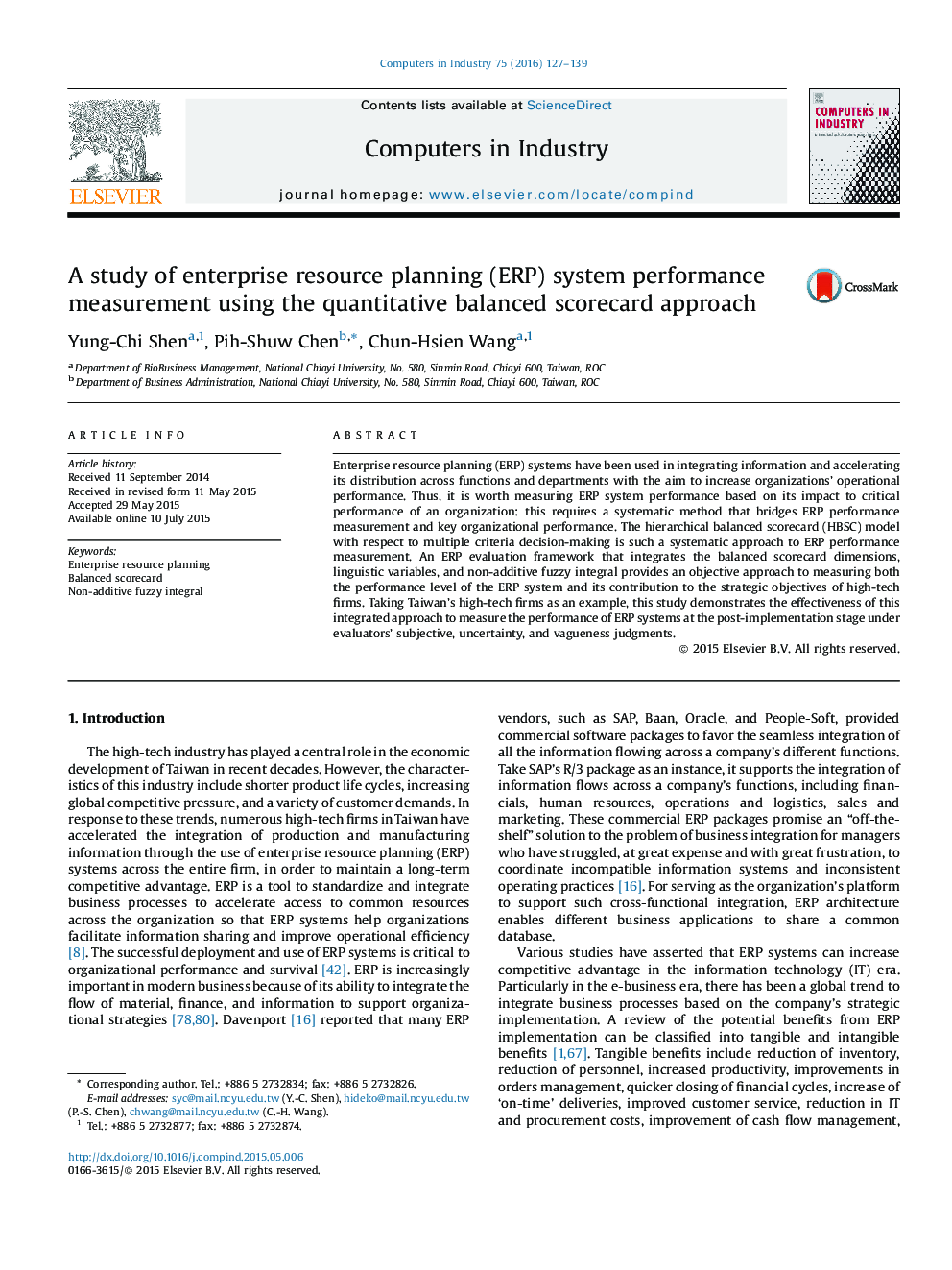| Article ID | Journal | Published Year | Pages | File Type |
|---|---|---|---|---|
| 508869 | Computers in Industry | 2016 | 13 Pages |
•This study proposed an ERP performance measurement framework based on BSC.•The non-additive fuzzy integral is applied to measure the ERP performance.•The proposed approach reflects the interdependence among performance criteria.•The proposed approach reflects the fuzziness existing in experts’ judgments.
Enterprise resource planning (ERP) systems have been used in integrating information and accelerating its distribution across functions and departments with the aim to increase organizations’ operational performance. Thus, it is worth measuring ERP system performance based on its impact to critical performance of an organization: this requires a systematic method that bridges ERP performance measurement and key organizational performance. The hierarchical balanced scorecard (HBSC) model with respect to multiple criteria decision-making is such a systematic approach to ERP performance measurement. An ERP evaluation framework that integrates the balanced scorecard dimensions, linguistic variables, and non-additive fuzzy integral provides an objective approach to measuring both the performance level of the ERP system and its contribution to the strategic objectives of high-tech firms. Taking Taiwan’s high-tech firms as an example, this study demonstrates the effectiveness of this integrated approach to measure the performance of ERP systems at the post-implementation stage under evaluators’ subjective, uncertainty, and vagueness judgments.
